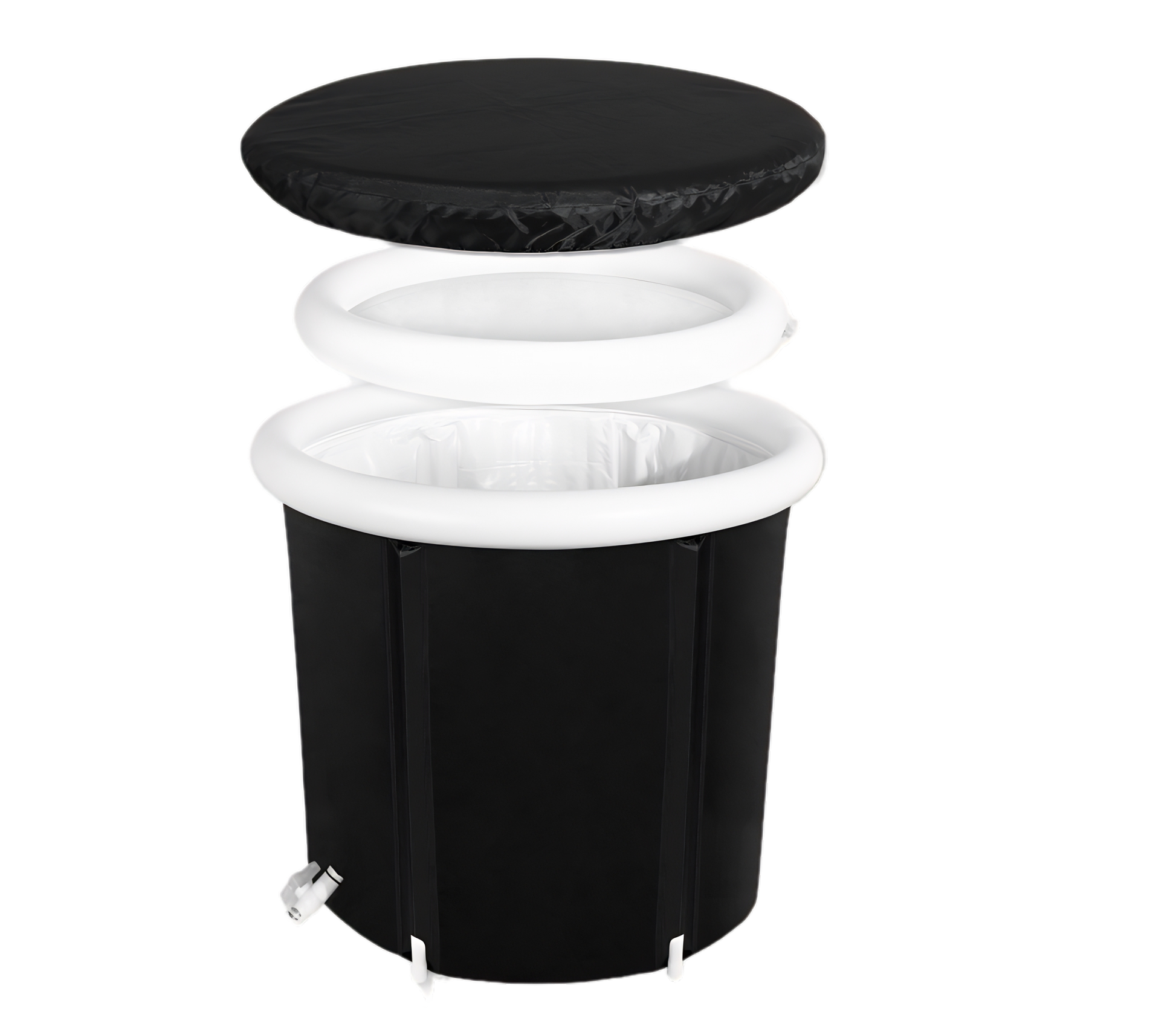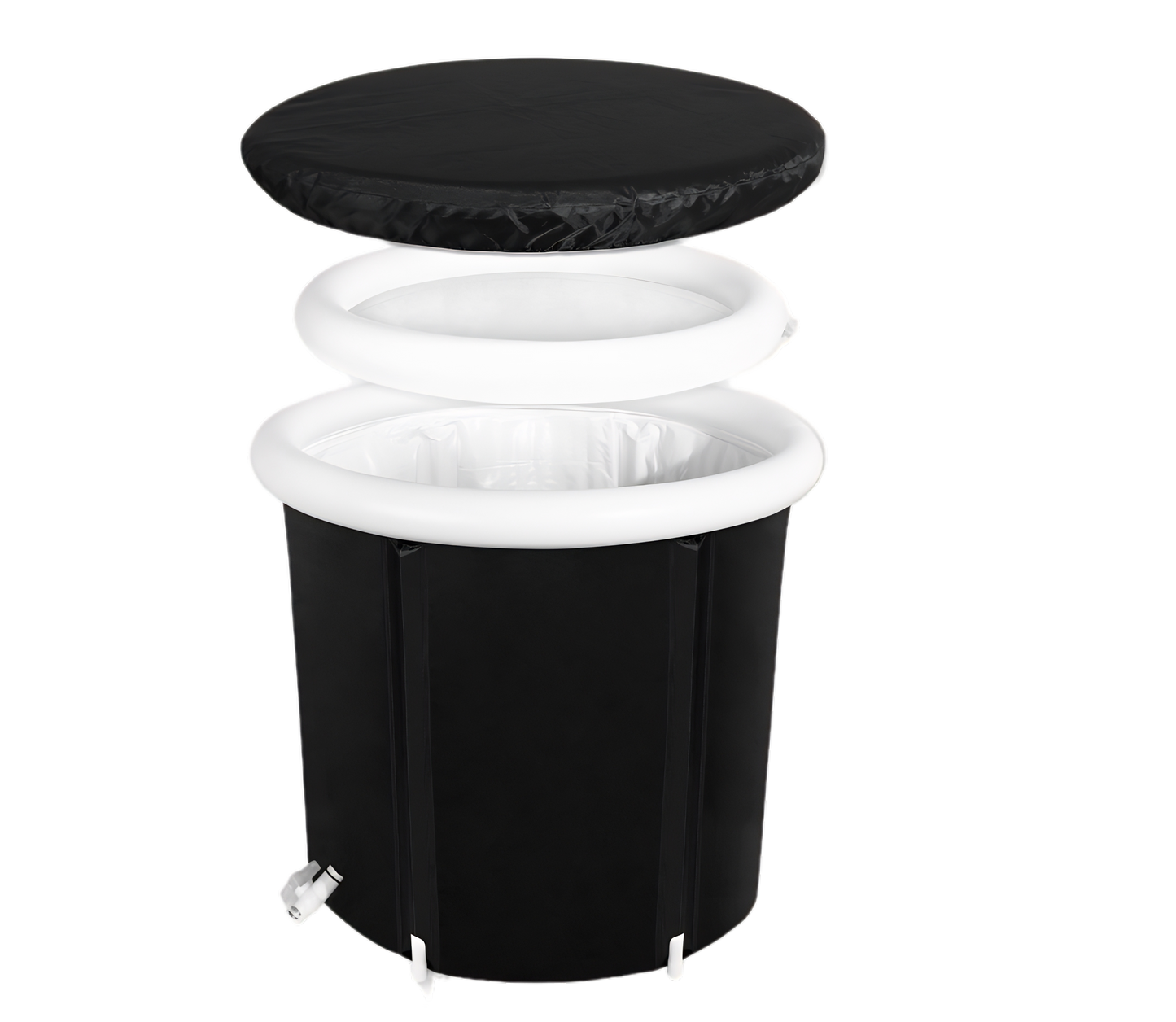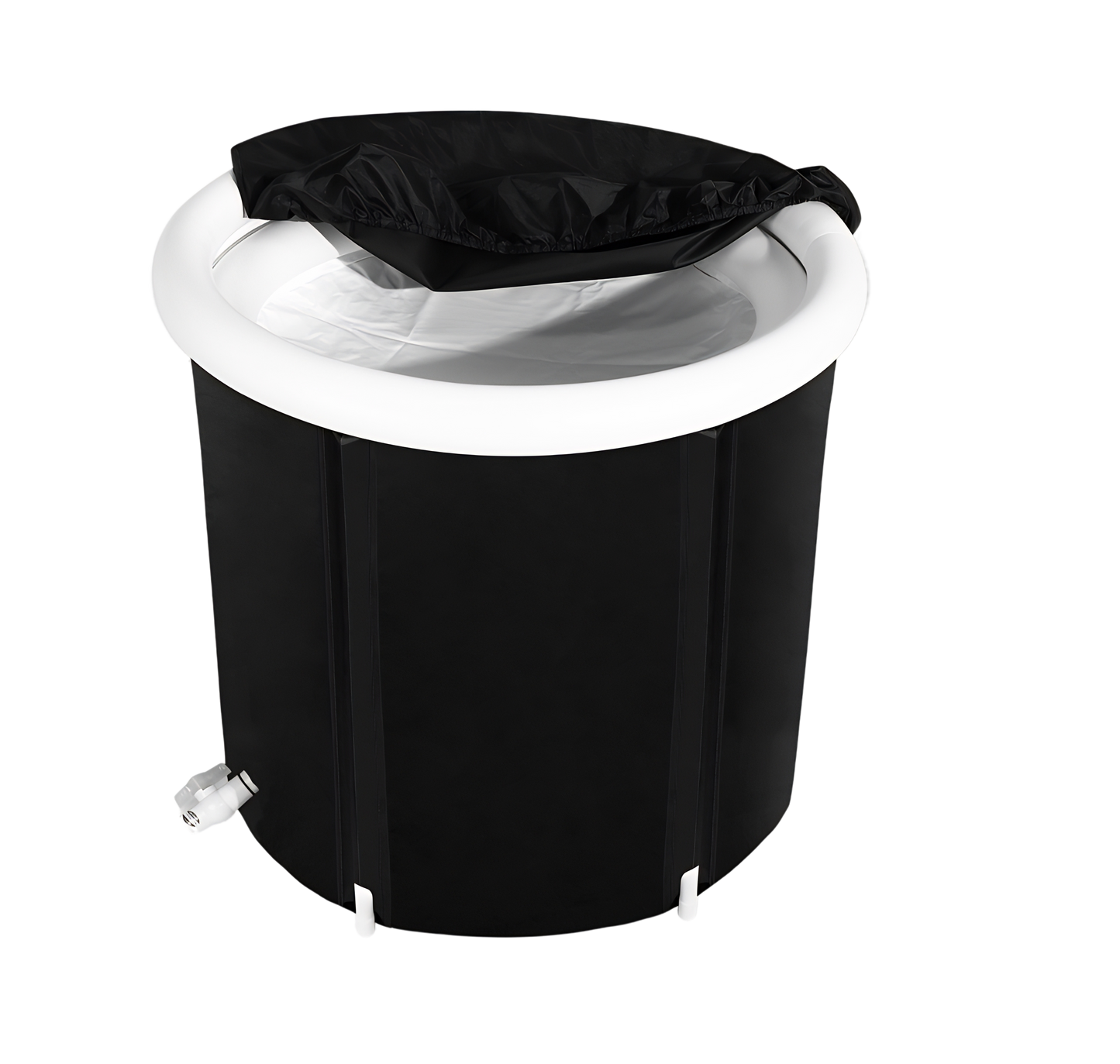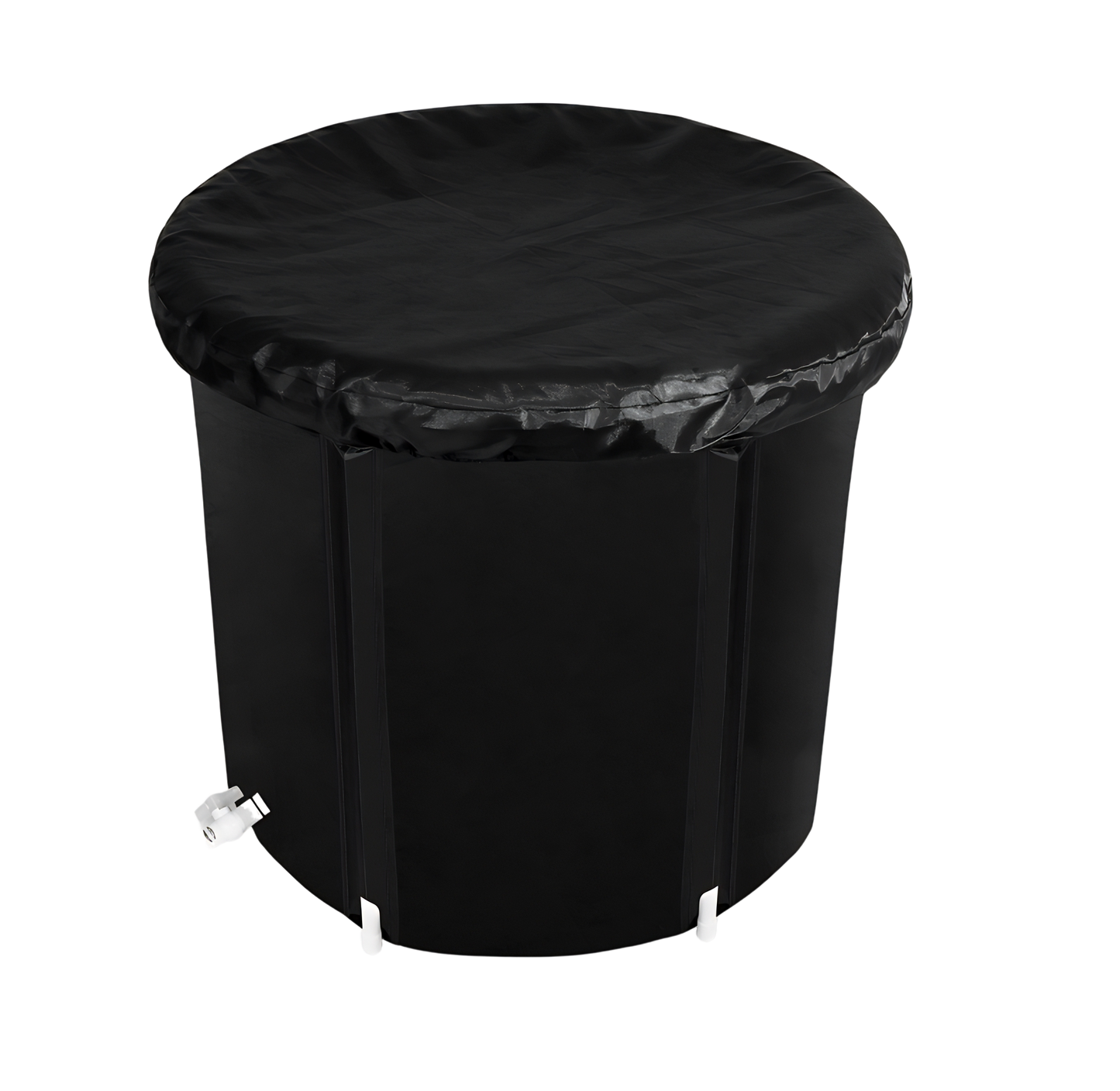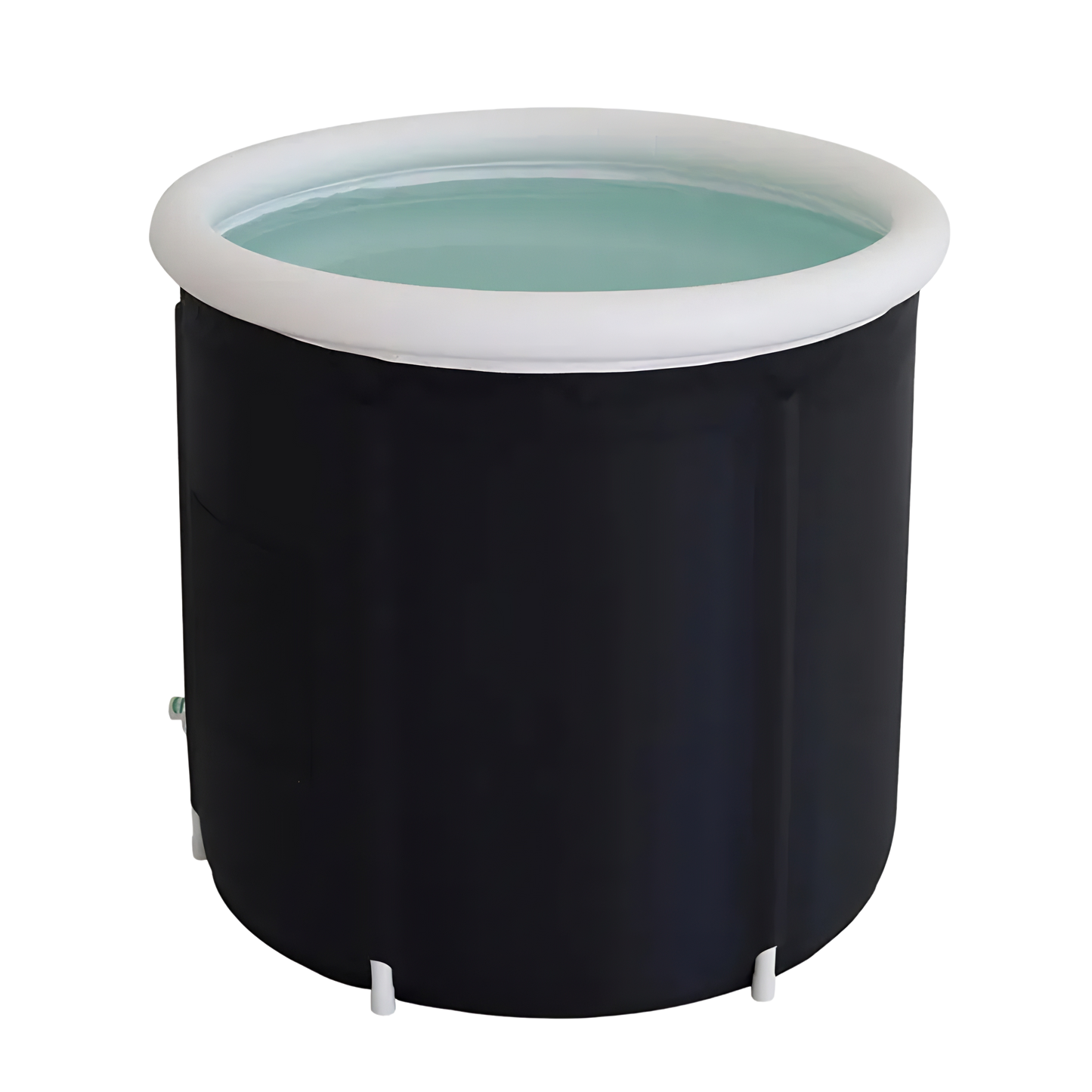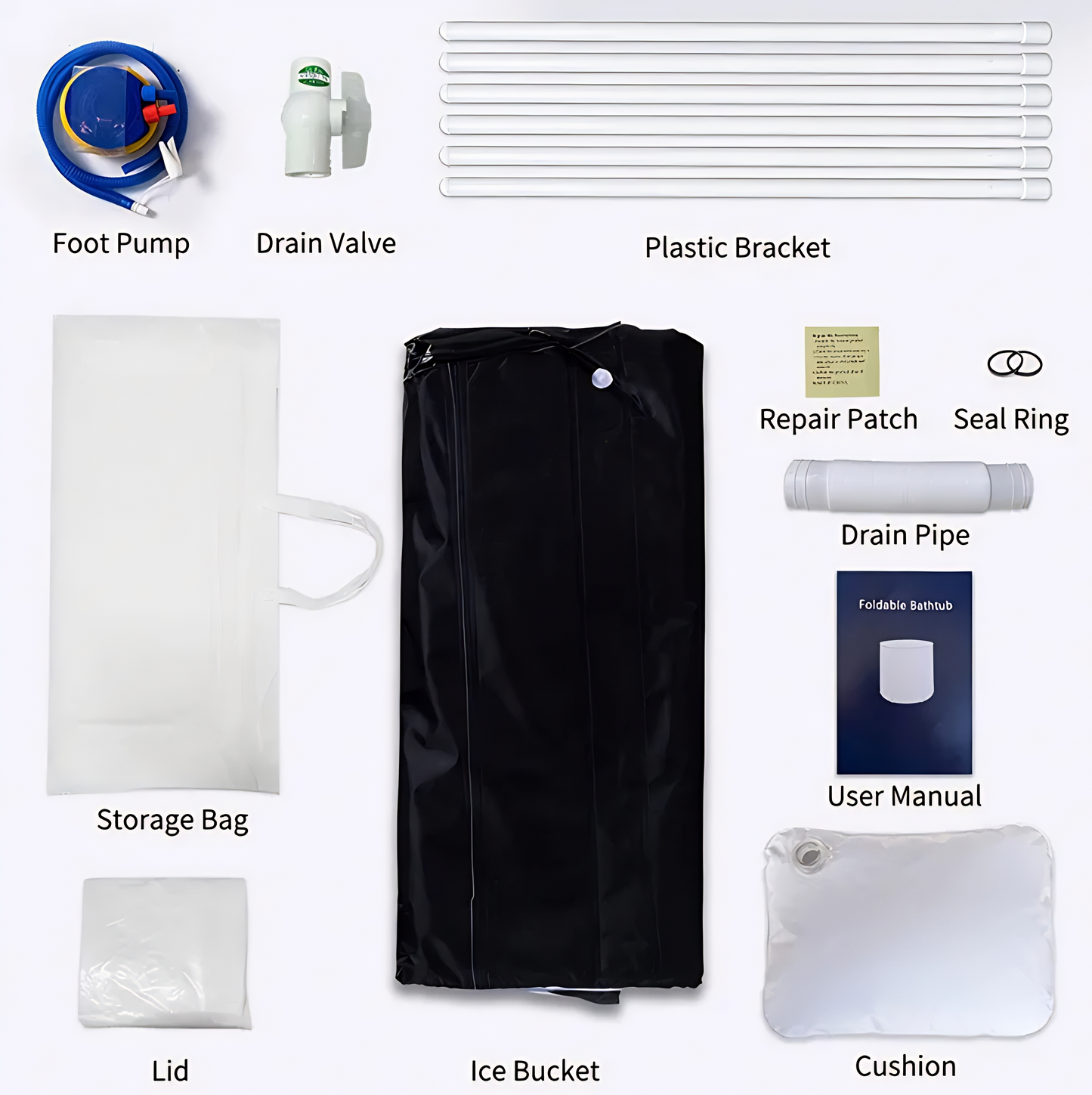Key Takeaways:
- Ice baths and cold water immersion have the potential to reduce stress and promote relaxation.
- The Wim Hof method combines cold exposure, breathing exercises, and meditation for stress management.
- Cold water swimming has been linked to improved mood and well-being.
- It's important to approach ice baths and cold water therapy with caution and consult with a healthcare professional.
- While more research is needed, many individuals have found ice baths helpful for managing stress.
Are you tired of feeling stressed and overwhelmed? Seeking a natural and refreshing way to relax and unwind? Look no further than ice baths and cold water immersion. These invigorating therapies have been gaining attention for their potential to reduce stress and promote a sense of calm and well-being.
Early research suggests that ice baths and cold water immersion can provide mental health benefits, including stress reduction. The Wim Hof method, which combines cold exposure with breathing and meditation, has gained popularity for its potential to manage anxiety and stress. Cold water swimming has also been found to improve mood and well-being.
While more research is needed to fully understand the mechanisms behind these benefits, many individuals have reported positive experiences with ice baths for relaxation and stress management. It's important to note that cold water immersion should be done safely, and individuals should consult with their healthcare provider before starting any new therapy or treatment.

The Potential Mental Health Benefits of Ice Baths and Cold Water Immersion
Ice baths and cold water immersion have been gaining attention for their potential mental health benefits, particularly in reducing stress and promoting relaxation. Research conducted in Britain found that individuals who participated in a 10-week course to learn cold-water swimming experienced greater improvements in mood and well-being compared to those who did not participate. Additionally, case studies have shown that cold water immersion may help manage mental illnesses such as anxiety and depression.
While the specific mechanisms behind these benefits are not yet fully understood, it is believed that the release of stress hormones, activation of the parasympathetic nervous system, and the challenge of enduring the cold may contribute to the reported improvements in mental health. Cold water immersion has also been found to improve mood and well-being in some individuals.
However, it's important to note that more high-quality studies are needed to thoroughly understand the specific benefits and mechanisms of action. While the evidence for ice baths and cold water immersion as a tool for stress reduction and relaxation is promising, it is essential to approach it with caution and under proper guidance.
Table: Summary of Potential Mental Health Benefits
| Benefit | Summary |
|---|---|
| Improved mood and well-being | Research suggests that cold water immersion may lead to greater improvements in mood and overall well-being. |
| Stress reduction | Ice baths and cold water immersion have been reported to help reduce stress and promote relaxation. |
| Management of anxiety and depression | Cold water immersion may be beneficial in managing symptoms of mental illnesses such as anxiety and depression. |

"I have personally experienced the positive effects of ice baths for stress management. The invigorating cold water provides a refreshing escape from the pressures of daily life, and I always feel a sense of calm and relaxation afterward." - Josie Oppenheim
While ice baths and cold water immersion show promise as potential tools for stress reduction and relaxation, it is crucial to approach them with caution and seek guidance from a healthcare professional, especially if you have any underlying health conditions (Who Should Avoid Ice Baths). Further research is needed to fully understand the benefits and mechanisms of action. However, many individuals have reported positive experiences with ice baths and cold water immersion for their mental health, highlighting their potential as a complementary therapy for stress management.
The Wim Hof Method and Cold Water Therapy for Stress Relief
In recent years, the Wim Hof Method has gained significant attention as a potential technique for managing anxiety, stress, and promoting overall well-being. Developed by Wim Hof, an extreme athlete and fitness guru, this method combines cold exposure, breathing exercises, and meditation to help individuals reduce stress and achieve a state of calm and relaxation.
The Wim Hof Method involves immersing oneself in cold water, such as ice baths, coupled with specific breathing techniques and meditation practices. This combination is believed to activate the parasympathetic nervous system, reduce stress hormone levels, and positively impact mental health.
"The Wim Hof Method has been a game-changer for me. It's helped me manage my stress levels and find a sense of calm and clarity even in challenging situations." - John, Wim Hof Method enthusiast
Although scientific research on the specific benefits of the Wim Hof Method is limited, many individuals have reported positive experiences in terms of stress reduction and improved mental well-being. It is important to approach the Wim Hof Method with caution and consult with a healthcare professional, especially if you have any underlying health conditions. Safety and proper guidance are essential when practicing any new therapy or treatment.

Cold Water Therapy for Stress Relief
In addition to the Wim Hof Method, cold water therapy, such as ice baths, has also been explored as a means of stress relief. The exposure to cold water is believed to elicit numerous physiological responses that can positively impact mental health, including increased endorphin release, improved circulation, and enhanced immune function.
While the exact mechanisms behind the stress-relieving effects of cold water therapy are still being studied, many individuals have reported experiencing a sense of calm and relaxation after immersing themselves in cold water. However, it is important to note that cold water therapy should be practiced safely and under proper guidance.
It is worth mentioning that cold water therapy, including the Wim Hof Method, may not be suitable for everyone. Individuals with certain health conditions or compromised immune systems should consult with their healthcare provider before attempting cold water immersion or any form of extreme cold exposure.
Conclusion
Ice baths and cold water immersion have gained attention for their potential mental health benefits, including stress reduction. While the research is still limited, early studies suggest that cold-water swimming and the Wim Hof method may have positive effects on mood, well-being, and mental health.
It is important to approach ice baths and cold water therapy with caution and to consult with a healthcare professional before starting any new treatment or therapy. While ice baths may not be a cure-all for stress and mental health challenges, they can potentially be a helpful tool for managing stress and promoting relaxation.
So if you're looking for a refreshing way to reduce stress, consider giving ice baths or cold water therapy a try. Just remember to prioritize your safety and consult with a healthcare professional to ensure it's right for you. Give yourself the opportunity to dive into a new stress reduction practice and experience the potential benefits of ice baths for yourself.
FAQ
Can ice baths help with stress reduction?
Early research suggests that ice baths and cold water immersion may provide mental health benefits, including stress reduction. Many individuals have reported positive experiences with ice baths for relaxation and stress management. However, it is important to approach cold water therapy with caution and consult with a healthcare professional before starting any new treatment or therapy.
What is the Wim Hof method?
The Wim Hof method is a technique that combines cold exposure, breathing exercises, and meditation to manage anxiety and stress. It was developed by Wim Hof, an extreme athlete and fitness guru. Many individuals have found the Wim Hof method helpful in managing their mental health. However, it is important to approach this method with caution and consult with a healthcare professional if you have any underlying health conditions.
How do ice baths and cold water immersion work for stress reduction?
The specific mechanisms behind the mental health benefits of ice baths and cold water immersion are still being researched. It is believed that the release of stress hormones, activation of the parasympathetic nervous system, and the challenge of enduring the cold may contribute to the reported improvements in mental health. However, more high-quality studies are needed to fully understand the benefits and mechanisms of action.
Are ice baths a cure for stress and mental health challenges?
While ice baths and cold water therapy can potentially be helpful tools for managing stress and promoting relaxation, they are not a cure-all for stress and mental health challenges. A holistic approach across all domains of life is needed to properly address this.

